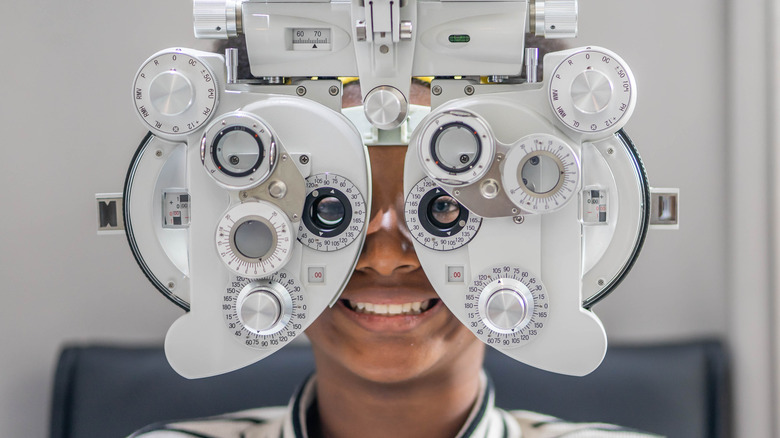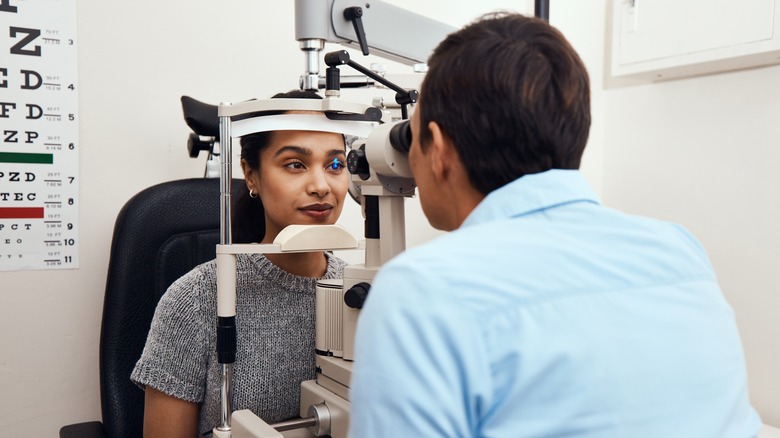Why Experts Say Black Patients Should Start Glaucoma Screenings Earlier In Life
Glaucoma is a serious health condition that disproportionately affects African Americans, occurring about five times more often in black patients compared to other ethnic groups. The Glaucoma Research Foundation warns that glaucoma develops earlier and progresses more rapidly in African Americans. Researchers don't yet clearly understand why black adults are more susceptible to glaucoma, but increased vulnerability to specific health conditions could be genetic (via MedlinePlus). Here's why experts say black patients should start glaucoma screenings earlier in life.
The American Academy of Ophthalmology describes glaucoma as a disease that involves excess fluid buildup in the eye. The extra fluid puts added pressure on the eyeball, causing damage to the optic nerve. The Mayo Clinic has identified two primary types of glaucoma. Open-angle glaucoma is the most prevalent type, with symptoms including patchy blind spots in the vision, typically experienced in both eyes, leading to tunnel vision in advanced stages. Acute angle-closure glaucoma is rarer and is marked by severe headaches, eye pain, blurred vision, and halos around lights. Both types of glaucoma progress slowly and often don't show noticeable symptoms until the disease is advanced.
People who are at a greater risk than others for developing glaucoma could help slow or prevent vision loss by starting regular vision screenings early. According to the Mayo Clinic, early diagnosis can often help doctors create and implement effective treatment plans.
Black patients at risk for glaucoma should get screened early and often
The Glaucoma Research Foundation lists glaucoma as the second leading cause of blindness for African Americans, after cataracts. A study from Mount Sinai showed that black patients are six times as likely to have advanced vision loss after glaucoma diagnosis as white patients.
A risk factor of glaucoma is diabetes, another health condition that is more likely to affect black patients, according to the Office of Minority Health. African Americans are also at a higher risk of experiencing sickle cell anemia, or sickle cell disease (SCD), than other patients (per Medical News Today). Having SCD may increase the risk for glaucoma (per Community Medical Centers), and black patients with SCD should keep a close eye on their optical health. If glaucoma runs in your family, your risk for developing glaucoma rises by 20%, warns the Glaucoma Research Foundation.
If you are under 40 years old and have no risk factors for glaucoma, you may only need to get screened once every five to ten years, per Grin Eye Care. Adults in at-risk groups, including black patients, are recommended to get screened at least once every one to three years starting by the age of 40. Study author Dr. Louis Pasquale of Mount Sinai points out that black people may benefit from earlier screenings because they tend to develop glaucoma one to two decades earlier than white patients.


